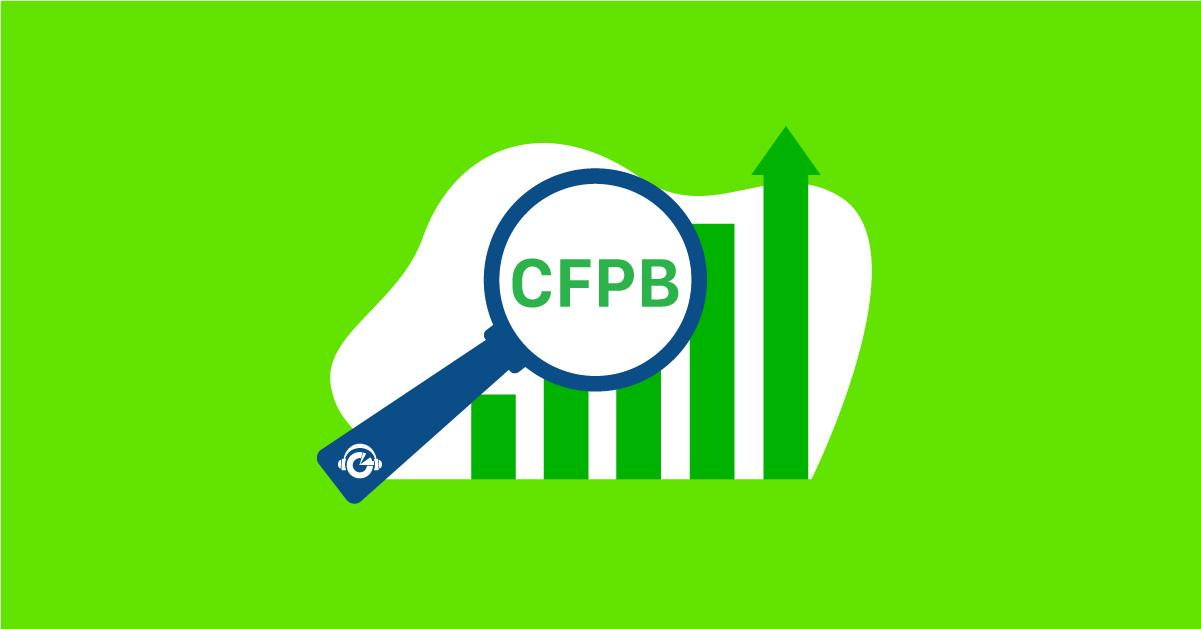Episode 17: CFPB Complaint Risk Signal Report Pt. 2

Episode Description:
This week’s COMPLY Podcast episode is part two of a conversation about one of our top annual content pieces – the CFPB Compliant Risk Signal Report. Every year we analyze the consumer complaints submitted to the Consumer Financial Protection Bureau and the compliance risk signals they present to financial institutions.
Today’s podcast is a continuation of a conversation between experts at PerformLine as they continue to talk through compliance risk signals from the CFPB’s consumer complaint database, including:
- Enforcement trends over the past year and expectations in 2023
- Prioritization of enforcement over consumer education
- Increased scrutiny of UDAAP
- The States’ role in enforcement and consumer protection
- Key takeaways to mitigate compliance risk
Show Notes:
- 2022 Complaint Risk Signal Report: https://bit.ly/3WfkULD
- CFPB Director Chopra: A Year in Review: https://bit.ly/3WcG5y0
- 8 Steps to Reduce UDAAP Violations: https://bit.ly/3ISoKaD
- Consumer Complaints, Enforcement Actions, and Compliance Trends from the CFPB: https://bit.ly/3kn1gAi
- Follow Rhonda: https://www.linkedin.com/in/rhonda-mcgill/
- Follow Gianna: https://www.linkedin.com/in/gianna-barrere/
Subscribe to COMPLY: The Marketing Compliance Podcast
About COMPLY: The Marketing Compliance Podcast
The state of marketing compliance and regulation is evolving faster than ever, especially for those in the consumer finance space. On the COMPLY podcast, we sit down with the biggest names in marketing, compliance, regulations, and innovation as they share their playbooks to help you take your compliance practice to the next level.
Episode Transcript:
Ashley:
Hey there, COMPLY podcast listeners, and welcome to this week’s episode. As you can tell from the title, this week’s episode is part two of a conversation that we started in our previous episode about one of our top annual content pieces – the CFPB Compliant Risk Signal Report. Every year we analyze the consumer complaints submitted to the Consumer Financial Protection Bureau and the compliance risk signals they present to financial institutions. So if you haven’t had a chance to listen to part one – we suggest that you do so.
Today’s podcast, however, continues that conversation between experts at PerformLine as they continue to talk through compliance risk signals from the CFPB’s Consumer Complaint Database, including enforcement trends over the past year and expectations in 2023, prioritization of enforcement over consumer education, increased scrutiny of UDAAP, the States’ role in enforcement and consumer protection, and key takeaways to mitigate compliance risk
Thanks for listening, and enjoy the show!
Gianna:
Director Chopra at the CFPB has made it clear that the Bureau is prioritizing enforcement over consumer education, and you know, he believes to some extent that consumer education can cause more harm than good because it can lead to an overconfidence in consumers. Rhonda, I know you have a lot of insights and a lot of thoughts on enforcement, so take it away.
Rhonda:
Yes. UDAAP will continue to be a focus of the CFPB as we move into the new year. The Bureau has not been shy to use its authority as it applies to abusiveness claims. I believe that they have taken action on at least five instances using that authority. Three banks, a payday lender, and online lender on a wide range of varying complaints that they deemed were abusive. So I doubt that this is gonna change in the coming year. We just may see a shift in who they are focusing on. I also believe that as you were just alluding to the CFPB does believe that consumer education can have an unfortunate effect on the consumer. So, therefore, they have to focus on enforcement to ensure the consumers are protected from harm.
Rhonda:
Consumers have really been in the driver’s seat. I think folks are thinking that there’s all these other drivers, but it has been the consumer that’s been in the driver’s seat as it applies to enforcement. Recently, Representative James Clyburn from South Carolina he’s on the House Select Subcommittee on the Coronavirus Crisis. He just asked the CFPB to investigate the credit reporting agencies for possibly violating Fair Credit Reporting Act. So the allegation is apparently that they disregarded some disputes without investigation during the pandemic. So there’s a lot of things that are happening out there, but these are driven by the consumers. So these are not just folks sitting in Washington DC scratching their head and saying, I wanna make something happen. Let’s go after <laugh> certain industries. These are consumer-driven, and if you look at these complaint reports, you can kind of see where they’re headed.
Rhonda:
And a lot of the issues this year were around credit reporting. So when you have the House select subcommittee, <laugh> asking for you to investigate those, you know, the three reporting agencies, there’s a there, there, that they want to be looked at. So I believe that we might see an uptick on some of the spaces that we observed where we observed some drop off because there were some drop off as it applied to, I think it was like student loans, and credit cards saw a little bit of a drop. There’s some good news in there because, in the student loan space, anyways they’ve received another extension until June of 2023. So as we enter into the new year, there’s still some uncertainty about student loan for debt forgive forgiveness programs. You know this is gonna impact 22 million Americans that have applied for these programs for forgiveness.
Rhonda:
So I think that the CFPB is also, you know, they’ve gotta kind of stay on top of where those complaints are gonna go in the coming months as folks start repaying and after June. And then also, the CFPB has some stuff going on with the Fifth Circuit Court, saying that the CFPB is unconstitutional because it believes that its funding mechanism is unconstitutional. So if that’s upheld, that could have a huge impact on the consumer finance space. So that’s gonna be interesting to watch as the CFPB goes before the US Supreme Court. I don’t anticipate that there’s gonna be anything changing that’s gonna slow down the CFPB, but I think that it’ll be interesting to see how the Supreme Court handles that matter. So yeah, I think that in, as it applies to enforcement on companies, enforcement on individuals, I think we’re just gonna see the CFPB continue to do the things that they have been doing and they’re just gonna keep their focus on the things that are all things consumer protection until something else changes out there.
Gianna:
Yeah, for sure. Lots to, lots to think about, yeah, <laugh>
Rhonda:
For sure, <laugh>.
Gianna:
And one of the other things too that the CFPB said this year is that they are gonna, you know, focus on those repeat offenders. So companies who are repeatedly, you know, violating the same laws and consumer protection regulations, and they said that they are gonna try to go towards a more structural enforcement instead of just monetary. You think that’s something we’ll see in 2023 as well?
Rhonda:
It’s possible. I think there has been so many instances where there have been repeat offenders to the point that the CFPB may very well come in and say, hey, it’s time for a structural change. But I also think that it’ll be interesting to watch and see how the CFPB is engaging with the Attorney Generals. There is definitely an opportunity for the AGs to work closely with the CFPB on things that, you know, might really impact consumers in their states. So there that may require some structural changes or some movement of people in some of these companies where they have seen repeat offenses.
Gianna:
Yeah, for sure. And we’ve seen those changes too this year. You know, the CFPB giving kind of more power to the states or, you know, bolstering the states enforcement and just, you know, leaning on them to enforce their own, you know, consumer protection laws on top of the CFPB. So…
Rhonda:
Absolutely, yeah, that’s why we’re deploying ourselves everywhere to stay on top of this stuff because it’s not just happening at the federal level. I’m really focusing in a lot these days on what’s happening in the states because you’ve got some states that are literally setting up in, almost like mini-CFPBs, they are taking action on behalf of consumers. So it’s not just a CFPB thing anymore. And I would definitely caution, you know, companies to really focus in on what are, what’s happening at the state level as well. Look at some of the states where a lot of the like the fintechs go to set up your Utah, South Dakotas, and I’m not saying that they’re going to enforce anything on a different level, but I think they’re going to have to take a consumer, you know, protection lens as they are enforcing.
Rhonda:
So it’s definitely going to be interesting times in the coming months, years, <laugh> as we definitely watch. And definitely keeping an eye on what’s gonna change, if anything, with the CFPB. Because if that Fifth Circuit matter sticks, there’s gonna be an impact on like OCC and the FDIC and a whole lot of others as well for the way that they’re structured. So it’s yeah, I can foreshadow that there’s definitely a need to keep an eye on things, but I believe that the states are definitely going to step up and do what they need to do to protect consumers.
Gianna:
Absolutely.
Rhonda:
And like said, do the, do the Fed thing. <laugh>.
Gianna:
Yeah <laugh> for sure. And you know, so safe to say that having, you know, a robust and very proactive compliance program will be key for getting out, you know, out ahead of regulatory scrutiny from the federal level and the state level and just, you know, making sure that your organization is prepared for pretty much anything that, you know, happens in 2023, because, you never know.
Rhonda:
You don’t know. And you know, I, yes, the economy has been like a rollercoaster, and you know, businesses have been laying off, but as I have continuously shared with our clients, no matter what happens, regulatory scrutiny does not die <laugh>, it’s going to always be there and sometimes even more so because you don’t have as many eyes on the ball because you don’t have as many eyes working in your company because of your layoff. So this is where automation of your compliance process is important. You can do more of the monitoring, and we can work with you to identify if there are key terms or phrases that you really wanna keep an eye on. Are there things that you just wanna, not necessarily and you know, do anything or take an action on, but just see if it’s gonna become a trend. Those are all those things that we can do here at PerformLine with our clients to really help them to look at their compliance program from a different lens with definitely taking into considering consideration that their teams may not be as large as they once were.
Gianna:
Absolutely, that visibility will be crucial for… Well this has been a super insightful discussion so far, but as we are getting short on time here, I did just wanna wrap up with a few key takeaways from the discussion. So I think we just talked about one proactive compliance, and having that automated monitoring in place will be important for compliance. What else?
Rhonda:
I would say regulators are gonna be looking for what are you doing to protect consumers? So this is the time to ask yourself what are you doing to protect consumers? It is also a time to really step back and reevaluate what worked with a larger, you know, more businesses, there’s still work if there’s a little bit less business and a smaller team, are there some things that you need to do different and how can we help you to achieve that? I believe ultimately things are going to start to uptick. We see things are starting to improve. Good lord, last week, I think they said that just on Black Friday, it was like 9 billion spent, and then 11 billion spent on Cyber Monday. And so just when you think about the amount of money that the US consumer is spending, it also tells you that, you know, how many of those were Buy Now, Pay Laters and how many of those <laugh>, you know, how, what was the payment mechanism?
Rhonda:
And so yes, the regulatory scrutiny is going to be there. And those complaints are going to probably start to come in as we draw closer to the holidays and people need to make a return, or they have buyer’s remorse or whatever it is. This is where a lot of, you know, this is time to really start thinking how can we ensure up our process to ensure that we are on top of consumer complaints? And, like I said, take care of it while it’s still within your four walls. Because once it gets outside, now you’ve got the regulator is in your business. And if these complaints build and build and build like we saw with, you know, credit disputes this year, here we go into 2023, and this is where a lot of that focus for enforcement and oversight’s gonna be is on those, you know, credit, you know, the credit companies, so, credit reporting agencies.
Gianna:
Yeah, absolutely. And you know, just to tie this all back in, all that to say, you know, the CFPB’s consumer complaint database is public, and it’s available for you and your organization to use. Keeping an eye on those complaints, you know, not only about your company but about others in your industry can help you, you know, stay on top of any emerging risks that might be coming from all of these different factors that we had just talked about today.
Rhonda:
I agree and use that information. If you’re a PerformLine client, use that information and talk to your Client Success Manager and start having the discussion about what are some of the things you can do to really shore up and make sure that your technology is working for you. What they say, you work smarter, not harder if you don’t…
Gianna:
<laugh> That’s the motto
Rhonda:
<laugh>. That’s what we’re here for <laugh>.
Gianna:
So with that, Rhonda, thank you so much again for joining me today and sharing your knowledge and insight.
Rhonda:
Thank you for having me. Thank for, I always say thank you for inviting me back. There’s, I think there’s so many other folks out there that are so much smarter and <laugh>. I just appreciate that you invite me because I enjoy having the opportunity to sit down with you and talk about that report because it’s definitely got some really good information.
Ashley:
Thanks for listening to this episode of the COMPLY podcast!
I’ll just do one more plug for our CFPB Compliant Risk Signal Report, if you haven’t had a chance to read the full report, it’s full of all the stats discussed during today’s episode, and it’s available in the show notes. We also have several resources that pertain to the regulations the industries talked about during today’s episode, including a blog on CFPB Director Chopra: A Year in Review, a guide on 8 Steps to Reduce UDAAP Violations, and an infographic on Consumer Complaints, Enforcement Actions, and Compliance Trends from the CFPB. All of those resources are located in today’s show notes, and as always for the latest content on all things marketing compliance, you can head to performline.com/resources.
Thanks again for listening, and we’ll see you next time!


